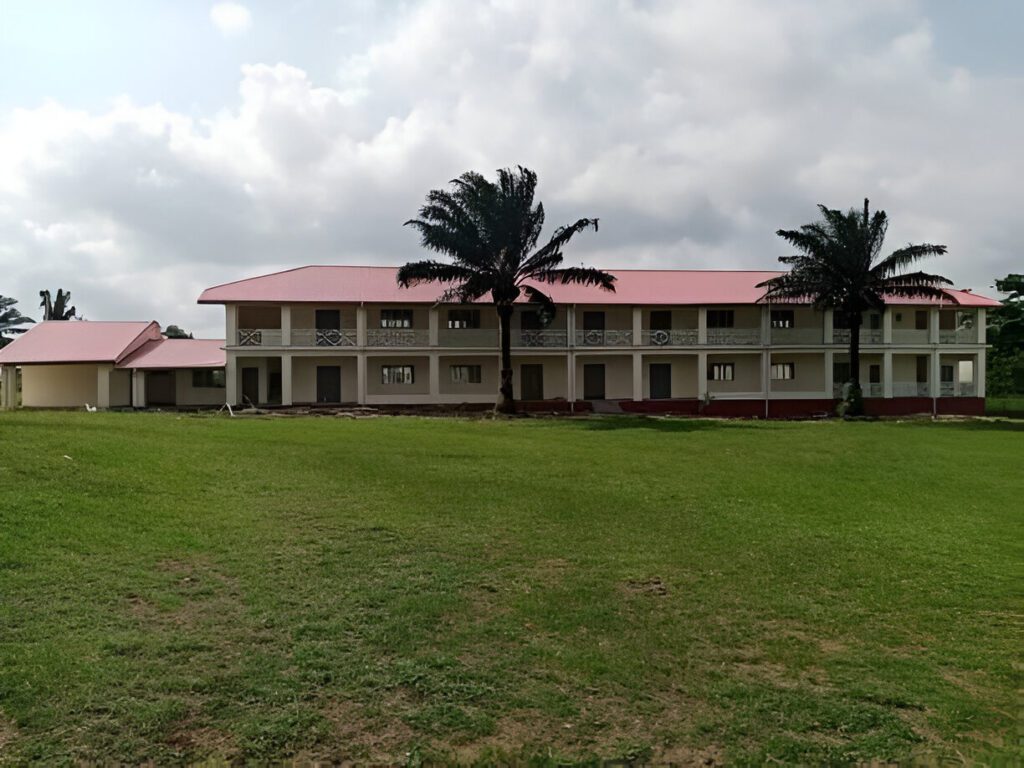Top Nigerian Universities for International Students: An In-Depth Overview
In this article you will find out the Top Nigerian Universities for International students for the year 2024 and beyond, since these universities are always in constant competition to maintain their stance and ranking.
Ensure to read the article to the end to have the full detail. already then, that having said lets start with a quick overview.
Nigeria, often referred to as the “Giant of Africa,” is home to some of the continent’s most prestigious universities. These institutions not only serve as pillars of academic excellence within Nigeria but also attract students from across the globe.
International students are increasingly recognizing the value of a Nigerian education, thanks to the country’s rich cultural heritage, diverse academic programs, and vibrant campus life.
In this guide, we will explore the top universities in Nigeria that are best suited for international students, considering factors like academic reputation, infrastructure, support services, and more.
The Best Universities in Nigeria
1. University of Ibadan (UI)
As the oldest university in Nigeria, the University of Ibadan has a longstanding reputation for excellence. It consistently ranks as one of the top institutions in Africa and offers a wide range of undergraduate and postgraduate programs. The university is known for its research output and has strong connections with global institutions, making it an attractive choice for international students.
2. University of Lagos (UNILAG)
Located in the commercial hub of Nigeria, UNILAG is another top choice for international students. The university offers a dynamic learning environment with a wide array of programs, especially in fields like engineering, business, and social sciences. Its strategic location also provides students with ample opportunities for internships and networking.
3. Covenant University
Covenant University, a private institution, is rapidly gaining recognition both within Nigeria and internationally. Known for its modern infrastructure and emphasis on discipline and leadership, the university is a great option for students who seek a holistic education. The institution’s commitment to innovation and entrepreneurship makes it particularly appealing to students interested in these areas.
4. Obafemi Awolowo University (OAU)
Located in Ile-Ife, OAU is one of Nigeria’s most prestigious universities, offering a wide range of programs with a strong emphasis on research. The university’s serene campus, combined with its academic rigor, makes it an ideal environment for international students looking for a comprehensive academic experience.

Comprehensive List of Programs Offered at Leading Nigerian Universities for International Students
Nigerian universities offer a diverse array of programs across various disciplines, making them suitable for students with different academic interests and career goals. Below is an overview of some of the most popular programs available to international students at top Nigerian universities:
1. Engineering and Technology
Programs in civil, electrical, mechanical, and petroleum engineering are among the most sought after by international students. Universities like the University of Lagos and Covenant University have state-of-the-art facilities and faculty members who are leaders in their fields.
2. Medicine and Health Sciences
Nigeria is known for producing some of the best medical professionals in Africa. Universities like the University of Ibadan and Obafemi Awolowo University offer comprehensive programs in medicine, dentistry, nursing, and public health.
3. Business and Economics
For students interested in business, finance, and economics, institutions like the University of Lagos and Covenant University provide top-tier programs with a focus on both theory and practical application.
4. Social Sciences and Humanities
The University of Ibadan and the University of Lagos are renowned for their programs in sociology, psychology, law, and mass communication, attracting students interested in understanding human behavior and society.
5. Computer Science and Information Technology
With the growing importance of technology in today’s world, Nigerian universities are expanding their offerings in computer science, data science, and information technology. These programs are designed to equip students with the skills needed to excel in the global tech industry.

Top Universities in Nigeria for International Students in 2024
1 University of Ibadan
2 University of Lagos
3 University of Port Harcourt
4 Obafemi Awolowo University
5 University of Ilorin
6 University of Nigeria
7 Covenant University
8 Ahmadu Bello University
9 University of Benin
10 Nnamdi Azikiwe University
11 Federal University of Technology Akure
12 Federal University of Agriculture, Abeokuta
13 Ladoke Akintola University of Technology
14 Lagos State University
15 Afe Babalola University
16 Olabisi Onabanjo University
17 Federal University of Technology, Minna
18 Adekunle Ajasin University
19 Kwara State University
20 University of Jos
21 Bayero University Kano
22 University of Abuja
23 Federal University of Technology Owerri
24 Rivers State University
25 Ekiti State University Ado Ekiti
Step-by-Step Guide to Gaining Admission into the Best Nigerian Universities as an International Student
Gaining admission into a Nigerian university as an international student can be a straightforward process if you are well-prepared. Here’s a step-by-step guide to help you navigate the admission process:
1. Research and Select Your Preferred University
Start by researching the universities that offer the program you’re interested in. Consider factors such as the university’s reputation, program quality, campus facilities, and location.
2. Check Admission Requirements
Each university has its own set of admission requirements for international students. These typically include academic qualifications, language proficiency (usually in English), and other specific criteria related to the chosen program.
3. Prepare Your Application Documents
Commonly required documents include your academic transcripts, certificates, a personal statement, letters of recommendation, and proof of English language proficiency. Make sure all your documents are certified and meet the university’s specifications.
4. Submit Your Application
Applications can often be submitted online through the university’s admission portal. Ensure that you meet the application deadlines and have paid the necessary application fees.
5. Attend an Interview (If Required)
Some programs may require an interview as part of the admission process. This could be conducted in person or online. Prepare thoroughly by reviewing potential questions and understanding the program’s expectations.
6. Await Admission Decision and Accept Offer
After submitting your application, you’ll need to wait for the admission decision. Once you receive an offer, follow the instructions provided to accept the offer and secure your place at the university.
7. Apply for a Student Visa
Once admitted, you will need to apply for a Nigerian student visa. This process involves submitting your admission letter, proof of financial capability, medical reports, and other required documents to the Nigerian embassy or consulate in your home country.
Understanding Tuition Fees and Financial Aid for International Students at Nigeria’s Top Universities
Tuition fees at Nigerian universities vary depending on the institution, program of study, and whether the university is public or private. Here’s a breakdown of what to expect:
1. Tuition Fees
Public Universities: Generally, public universities in Nigeria offer lower tuition fees compared to private institutions. For international students, fees can range from $1,000 to $5,000 per year, depending on the program.
Private Universities: Private universities tend to have higher tuition fees, ranging from $5,000 to $15,000 per year. These institutions often justify the higher fees with better infrastructure, smaller class sizes, and more personalized attention.
2. Financial Aid and Scholarships
Many Nigerian universities offer scholarships and financial aid to international students. These may be merit-based or need-based and can significantly reduce the cost of tuition. Some universities also partner with organizations and governments to provide scholarships to students from specific countries.
3. Cost of Living
Apart from tuition fees, international students should also budget for living expenses. The cost of living in Nigeria can vary depending on the city, but students should budget for accommodation, food, transportation, and other personal expenses. On average, a student might need $3,000 to $6,000 annually to cover living costs.

Why Choose Nigeria for Higher Education: Student Life, Culture, and Opportunities for International Students
Nigeria offers a unique and enriching experience for international students, with its vibrant culture, diverse population, and a growing economy. Here’s why studying in Nigeria could be a transformative experience:
1. Rich Cultural Experience
Nigeria is a melting pot of cultures, languages, and traditions. As an international student, you’ll have the opportunity to experience this diversity first-hand, from traditional festivals and music to local cuisine and art.
2. Thriving Campus Life
Nigerian universities are known for their active campus life, with numerous clubs, societies, and events. Whether you’re interested in sports, arts, or volunteer work, you’ll find plenty of opportunities to engage and make lasting friendships.
3. Career Opportunities
Nigeria’s economy is one of the largest in Africa, offering a range of career opportunities for graduates. The country is particularly strong in sectors like oil and gas, technology, finance, and agriculture. International students who choose to stay in Nigeria after graduation may find rewarding career prospects.
4. Strong Alumni Networks
Top Nigerian universities have strong alumni networks that span the globe. As a student, you’ll benefit from these connections, which can help you in your academic and professional journey.
5. Affordable Education
Compared to many Western countries, the cost of education in Nigeria is relatively affordable. Coupled with the availability of scholarships, this makes Nigerian universities an attractive option for international students seeking quality education at a lower cost.
Conclusion
Studying in Nigeria offers international students a wealth of opportunities—from access to top-tier academic programs to a vibrant cultural experience. By carefully selecting the right university, understanding the admission process, and preparing for the financial aspects of studying abroad, international students can make the most of their time in Nigeria and set the stage for a successful career.
Feel free to share this article using the social media handles below
![You are currently viewing Top Nigerian Universities for International Students (2024) [Updated]](https://freeprojectmaterials.com/wp-content/uploads/2024/09/steptodown.com178017.jpg)


